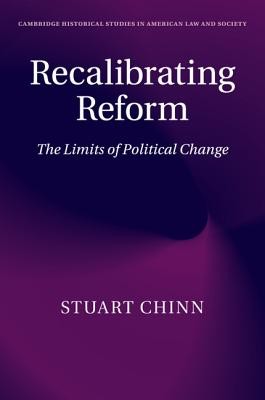
- We will send in 10–14 business days.
- Author: Stuart Chinn
- Publisher: Cambridge University Press
- ISBN-10: 1107667380
- ISBN-13: 9781107667389
- Format: 15.2 x 22.9 x 2 cm, minkšti viršeliai
- Language: English
- SAVE -10% with code: EXTRA
Reviews
Description
Some of the most important eras of reform in U.S. history reveal a troubling pattern: often reform is compromised after the initial legislative and judicial victories have been achieved. Thus Jim Crow racial exclusions followed Reconstruction; employer prerogatives resurged after the passage of the Wagner Act in 1935; and after the civil rights reforms of the mid-twentieth century, principles of color-blindness remain dominant in key areas of constitutional law that allow structural racial inequalities to remain hidden or unaddressed. When momentous reforms occur, certain institutions and legal rights will survive the disruption and remain intact, just in different forms. Thus governance in the postreform period reflects a systematic recalibration or reshaping of the earlier reforms as a result of the continuing influence and power of such resilient institutions and rights. Recalibrating Reform examines this issue and demonstrates the pivotal role of the Supreme Court in postreform recalibration.
EXTRA 10 % discount with code: EXTRA
The promotion ends in 23d.01:02:02
The discount code is valid when purchasing from 10 €. Discounts do not stack.
- Author: Stuart Chinn
- Publisher: Cambridge University Press
- ISBN-10: 1107667380
- ISBN-13: 9781107667389
- Format: 15.2 x 22.9 x 2 cm, minkšti viršeliai
- Language: English English
Some of the most important eras of reform in U.S. history reveal a troubling pattern: often reform is compromised after the initial legislative and judicial victories have been achieved. Thus Jim Crow racial exclusions followed Reconstruction; employer prerogatives resurged after the passage of the Wagner Act in 1935; and after the civil rights reforms of the mid-twentieth century, principles of color-blindness remain dominant in key areas of constitutional law that allow structural racial inequalities to remain hidden or unaddressed. When momentous reforms occur, certain institutions and legal rights will survive the disruption and remain intact, just in different forms. Thus governance in the postreform period reflects a systematic recalibration or reshaping of the earlier reforms as a result of the continuing influence and power of such resilient institutions and rights. Recalibrating Reform examines this issue and demonstrates the pivotal role of the Supreme Court in postreform recalibration.


Reviews